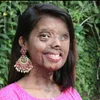Meet the acid attack survivors who are leading the change and inspiring others
From Reshma Qureshi to Laxmi Agarwal, these women are breaking the cycle of humiliation and perceptions about acid attack survivors.
With Deepika Padukone’s Chhapaak, inspired by the life of acid attack survivor Laxmi Agarwal releasing on the big screen today, the spotlight is on powerful women who, despite the humiliation and the “scarred” lives, are shining through with their grit and determination to move forward in life.
Acid attacks have become commonplace in India and most of these attacks are due to rejection of marriage, sexual advances, love proposals, or dowry disagreements.
Land, property, and business disputes account for another 20 percent of these assaults, according to NGO Make Love Not Scars, which works with acid attack survivors in India. Many of them get seriously injured, burnt and/or severely disfigured; some even die.
Most survivors do not come out in public, fearing humiliation. They have revealed that they feel suicidal; some of them even take their own lives. Society often relegates these survivors to the fringe. However, several survivors have come out and broken the silence. Like Lakshmi Agarwal, many are spearheading change for survivors, pushing for better law and punishment, and building new opportunities.
Here are a few survivors who are leading by example and inspiring change.
Reshma Qureshi

Reshma Qureshi walking the ramp at the NYFW.
Reshma Qureshi was 17 when four men, including her sister's husband, attacked her with acid. In May 2014, she was in Allahabad to write an exam when the incident occurred. In an effort to save herself and her sister, she wrested the acid from the men. The men poured acid over her, which severely burned and disfigured her face; one of her eyes was damaged permanently.
In 2016, Reshma walked the ramp at the New York Fashion Week to promote the campaign #TakeBeautyBack. She also appeared in a YouTube video to raise awareness about rampant sale of industry-grade acid in India, calling for better sales regulations of acid, which is as easily available as lipstick.
Laxmi Agarwal
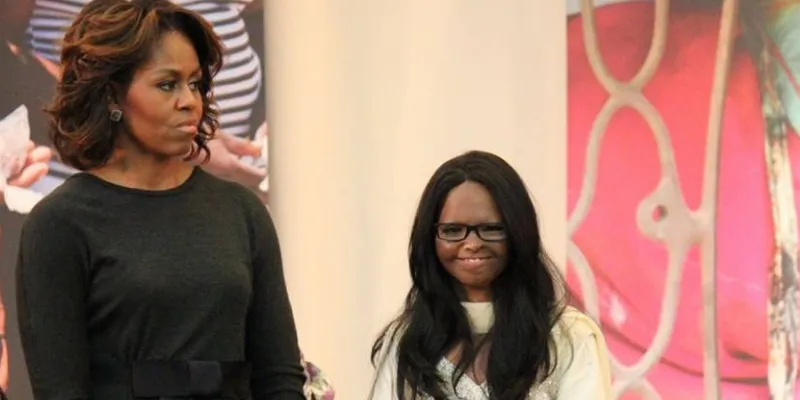
Laxmi Agarwal with Michelle Obama, former First Lady of the United States of America.
Laxmi Agarwal’s story inspired Director Meghna Gulzar and now, her story of grit and courage is being portrayed by Deepika Padukone on the big screen in Chhapaak. Laxmi, 15, was in Delhi’s Khan Market when her acquaintances, Guddu and Rakhi, attacked her. Her refusal to marry Guddu, her friend’s brother was the reason behind the attack. She underwent immense physical and mental pain, alongwith seven surgeries.
She decided to take the case to court, and the judgement came after four years: Guddu was sentenced to 10 years imprisonment and Rakhi to seven years. This was the first time that an accused was given 10 years in an acid attack case, setting a precedent for other such cases.
Laxmi found her purpose with the Chhanv Foundation, a culmination of the Stop Acid Attacks campaign that she was part of. Through the Foundation, she assists victims with treatment, legal aid, and rehabilitation. She also provides employment opportunities to acid attack survivors in her cafe, Sheroes, in Agra.
Anmol Rodriguez
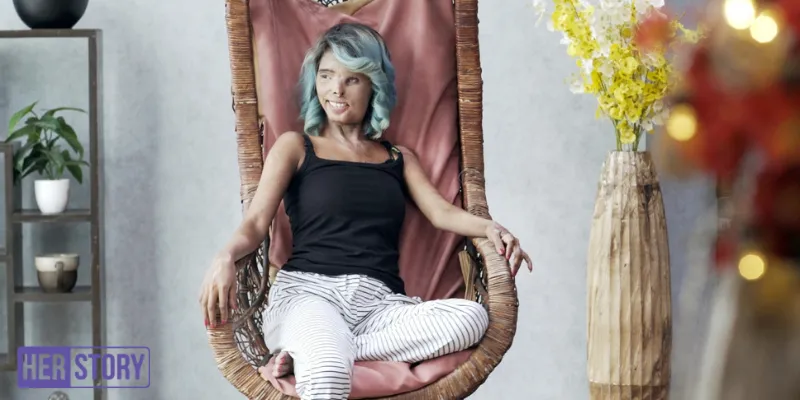
Anmol Rodriguez in a campaign for Clovia.
Anmol was just two months old when her father threw acid at her mother, who died from the burns. Baby Anmol, who was on her lap, was left with a disfigured face, permanent scars and nowhere to go. She required several surgeries, but she lost an eye and her face was severely disfigured.
Raised in an orphanage, Anmol struggled to make friends and also had to quit her job because she faced discrimination. She then started an NGO called Acid Attack Survivor Sahas Foundation to help other survivors. A fashion icon, she has modelled for several Instagram and YouTube channels. Anmol is the face of recently launched line of nightwear, with what the brand calls striking quote -prints “that inspire the modern Indian woman to liberate her true self”.
Daulat Bi Khan
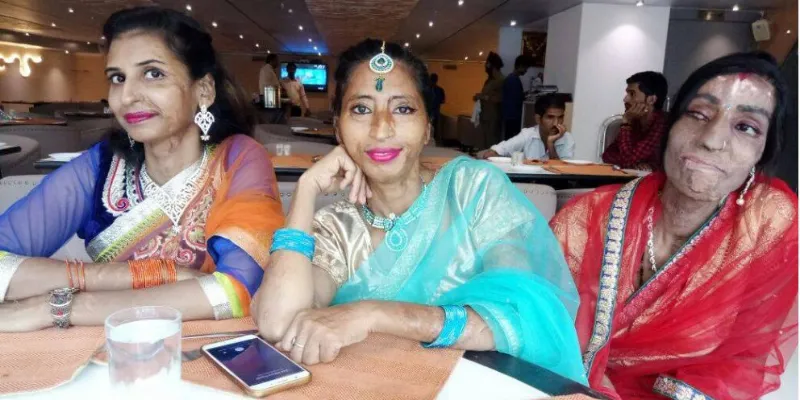
Daulat Bi Khan (centre) with other acid attack survivors.
Daulat Bi Khan, 26, a makeup artist, was sitting on a sofa when her sister and brother-in-law threw acid on her. The couple was not treating her mother well, and when Daulat questioned their actions, they retaliated by hurling acid on her face and disfiguring it.
After the incident, Daulat decided to help other survivors and sowed the seeds for the NGO Acid Attack Survivor Sahas Foundation. This Mumbai-based NGO provides counselling, education, and employment opportunities for 26 victims of acid attacks, enabling them to lead happy and independent lives.
Dolly
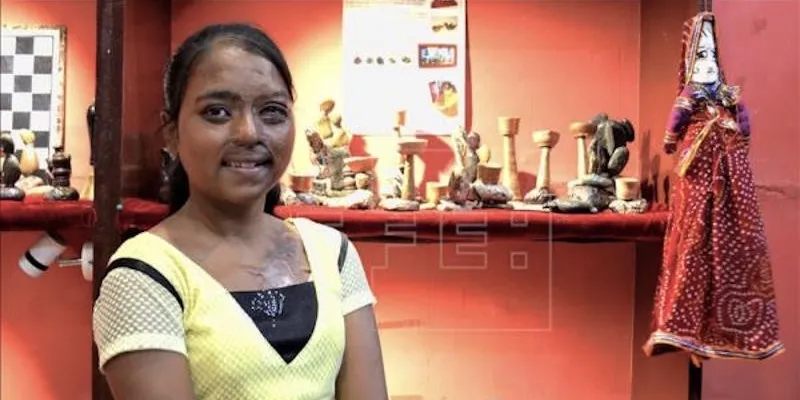
Dolly at the Sheroes cafe.
Dolly was 12 years old when a man double her age started stalking her, passing lewd remarks and suggesting they should sleep together. She was playing with other children when the man threw acid on her face and scarred her face permanently. The incident caused damage to her facial tissues and her nostrils, and still causes breathing troubles.
For a year after the attack, she didn’t venture outside the house. Sometime later, she got to know about Sheroes Cafe in Agra and works with other acid attack survivors in the cafe.
Dolly’s assailant is in prison and in 2016 she sent him a letter to tell him that he had failed to break her spirit. “You burned my face, but not my will to live. You cannot throw acid on that,” she wrote.
These women and other acid attack survivors are true changemakers, inspiring survivors and others alike.
(Edited by Rekha Balakrishnan)



1560685436400.png?fm=png&auto=format&h=100&w=100&crop=entropy&fit=crop)
